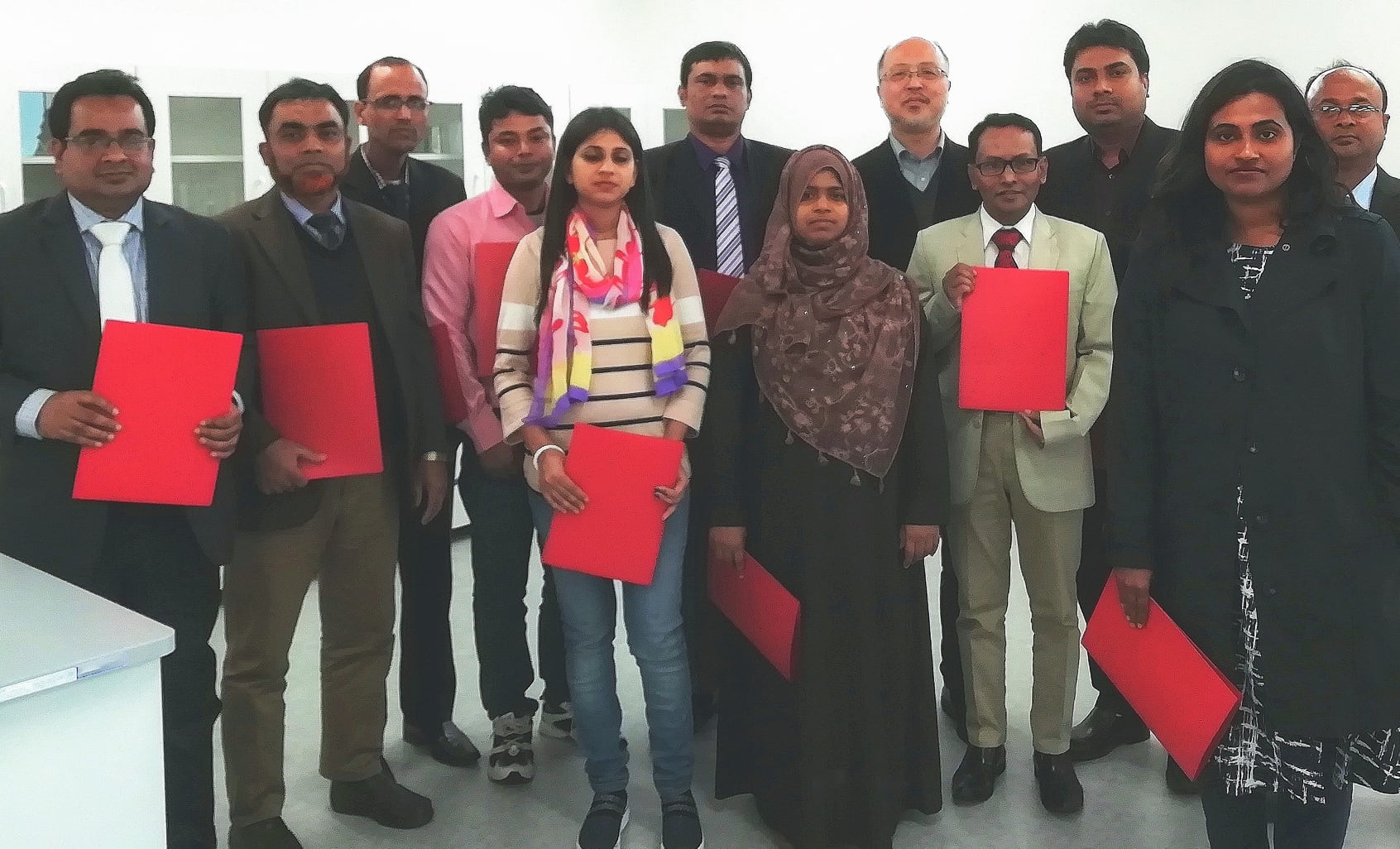Temple University, Japan Campus (TUJ) Corporate Education conducted a three-day customized training program from February 27 to March 1, 2019 on safety inspection for livestock products in Japan for ten staff from the People’s Republic of Bangladesh Ministry of Fisheries and Livestock. This was the second delegation from the ministry following one headed by Minister Narayon Chandra Chanda in June in 2018.
In Bangladesh, the amount of food derived from animals is increasing while the national inspection system guaranteeing food safety is not well established. TUJ arranged the program for the staff to learn about safety inspection systems and practices in Japan. All participants were professional staff with Ph.D. and other advanced training. They will assume key roles in supervising inspection activities in Bangladesh.

On the morning of February 27, the program commenced at Yokohama Analytical Center of Thermo Fisher Scientific K.K.. Minoru Ohki, business development supervisor of TUJ Corporate Education who designed and arranged the program, delivered a program orientation and briefed the participants on Japanese culture.
Dr. Takeshi Yamasaki, president of NPO Science of Food Safety and Security, gave a lecture on food safety issues in Japan and risk communication for food safety.
Then Thermo Fisher Scientific K.K. explained their businesses and guided participants on a tour through their Yokohama Analytical Center.
After lunch, the participants went to a shopping mall followed by a visit to the Tokyo Office of Shimadzu Corporation, where they received an introduction to the company’s history and businesses. They also toured a showroom of analytical instruments.
On the morning of February 28, the group visited Nouminren (Japan Family Farmers Movement) Food Research Laboratory, where they learned about the history and activities of the laboratory and saw a variety of analytical instruments. In the afternoon, the members went to another laboratory.

On the morning of March 1, the participants toured the Shin-Misato Water Filtration Plant in Saitama Prefecture and learned about the water purification process and tap water quality in Japan.
After lunch, the members went to a large supermarket before concluding the program with a visit to Coop Deli Food Inspection Center, where they learned the philosophy and history of cooperatives, and missions and activities of Coop Deli Group.
Through this series of lectures and visits, the participants realized that various stakeholders with their respective missions are involved in food safety inspections in Japan.
TUJ Corporate Education continues to organize training programs for various government ministries and agencies of Indonesia, Bangladesh, Vietnam and other countries.

